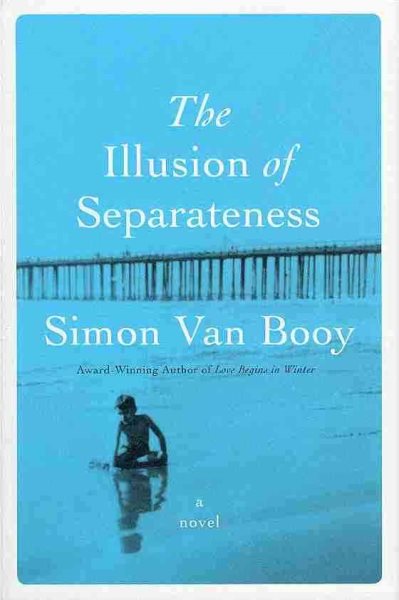Woodrell’s latest expands his fictional universe with dance hall blast and mystery
 In 2010 success of the movie Winter’s Bone finally and fully awakned all the reading world to the Tom Sauk Mountain of literature Ozarker Daniel Woodrell has created. Now with his latest, The Maid’s Version: A Novel, the count is nine novels and a short story collection, five of them New York Times Notable Books of the Year, and almost all of them set in the Missouri Ozarks.
In 2010 success of the movie Winter’s Bone finally and fully awakned all the reading world to the Tom Sauk Mountain of literature Ozarker Daniel Woodrell has created. Now with his latest, The Maid’s Version: A Novel, the count is nine novels and a short story collection, five of them New York Times Notable Books of the Year, and almost all of them set in the Missouri Ozarks.
No better way to unpack the totality of his fabled and invented Ozarks town of West Table than to explode a dance hall in the midst of it. The Arbor Dance Hall blast of 1929 is the big bang central to a whole universe that is surely and supplely, inclusively and beautifully Woodrell’s best novel yet.
His previous novels have arisen from an instinct he coined, “Country Noir.” His main characters, mostly rural poor or impoverished denizens of Ozarks towns rarely keep steady employment unless it is illicit, and, true to much Ozarks living, frequently lack options or even the impulse control to make choices aside from the very worst. Few current writers can touch Woodrell for making abject poverty and forlorn crime compelling on the page without pandering, condescending, or ennobling what is just dirty, raw economic hardship.
In The Maid’s Version, though, Woodrell brings to life high and low alike. In many previous novels, such as the great Tomato Red, the country club set of West Table, the elite who call the shots, are a snobby klatch of meanies who destroy lives and hope but rarely rate a speaking part. Meanwhile rakish ne’er do wells, drug abusers, prostitutes, and Robin Hoods take center stage. The Maid’s Version sidelines the hardened criminals and brings the low but mostly honorable Dunahews—a house maid, her free-spirited sister (mistress often to the wealthy), sons, and grandson narrator—into close and profound contact with bankers and landowners, whose lives are morally complex, filled with good and evil and even some humane if guilt-driven charitable gestures.
Woodrell’s unforgettable glimpses of the many who gathered and died at the Dance Hall seem to pay, in style, a kind of hillbilly homage to another towering Missouri writer, the late Evan S. Connell of Kansas City. Woodrell detonates brief explosions of life, such as the birdshot vignette of Dimple Powell, beautiful like all the Powells, and off to her first and last dance under watch of her nervous and soon-to-be bereaved father. In The Maid’s Version, the breadth of Woodrell’s universe is expanded so beyond the bounds of the mystery that propels the plot, readers will find themselves aggrieved and longing in the red-shift passage of sailing blast victims and guilt-ridden, grief stricken, and damaged survivors of its fiery bang. And readers will emerge instantly desirous to return to his corner of the Ozarks, now broadened and starry as a galaxy.
***
Steve Yates, a native of the Missouri Ozarks, is the author of Morkan’s Quarry: A Novel and Some Kinds of Love: Stories.
***
Daniel Woodrell will sign The Maid’s Version: A Novel at Lemuria Books, Thursday, September 19 at 5 p.m. with a reading at 5:30 p.m. The Maid’s Version is Lemuria’s September First Editions Club Selection.
The Maid’s Version: A Novel Daniel Woodrell, Little, Brown and Company, Hardback $25.00, 176 pages
 If you have read Alice McDermott before, you don’t need me to tell you she is exceptional (1 National Book Award, 3 Pulitzer Prize nominations); her books always seem to make a quiet entrance but an echoing exit.
If you have read Alice McDermott before, you don’t need me to tell you she is exceptional (1 National Book Award, 3 Pulitzer Prize nominations); her books always seem to make a quiet entrance but an echoing exit.







 Here at Lemuria we love books. We love everything about them, their look, feel, and smell; we love reading books more than collecting, most of the time. When you come into our shop, as I’m sure you’ve found out first hand, you never know what kind of treasures you’re going to find. We feel the same. Everyday at work it’s like mining for gold, but unlike sifting around in a creek hoping to find a scrap of wealth, treasure hunting at Lemuria is like panning through jewels for jewels. But sometimes you find something just really incredible.
Here at Lemuria we love books. We love everything about them, their look, feel, and smell; we love reading books more than collecting, most of the time. When you come into our shop, as I’m sure you’ve found out first hand, you never know what kind of treasures you’re going to find. We feel the same. Everyday at work it’s like mining for gold, but unlike sifting around in a creek hoping to find a scrap of wealth, treasure hunting at Lemuria is like panning through jewels for jewels. But sometimes you find something just really incredible.




 I just finished reading Cormac McCarthy’s
I just finished reading Cormac McCarthy’s 